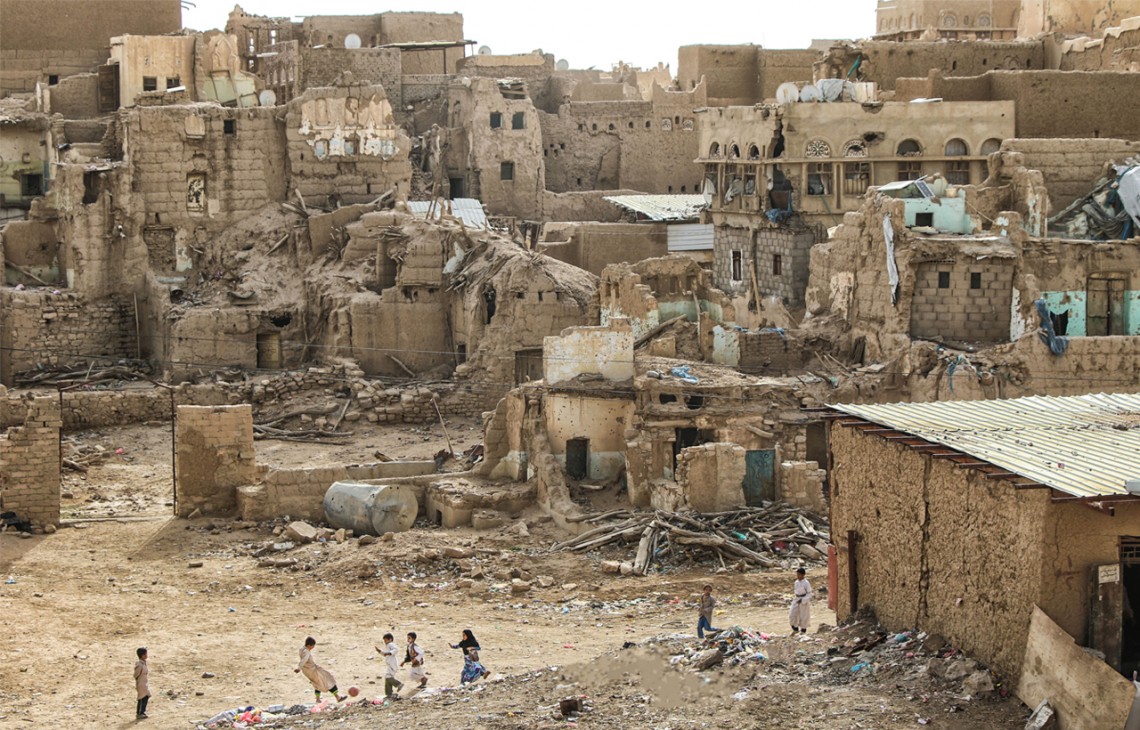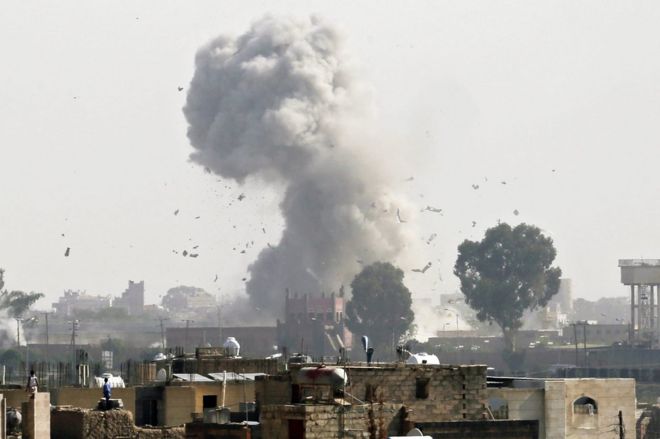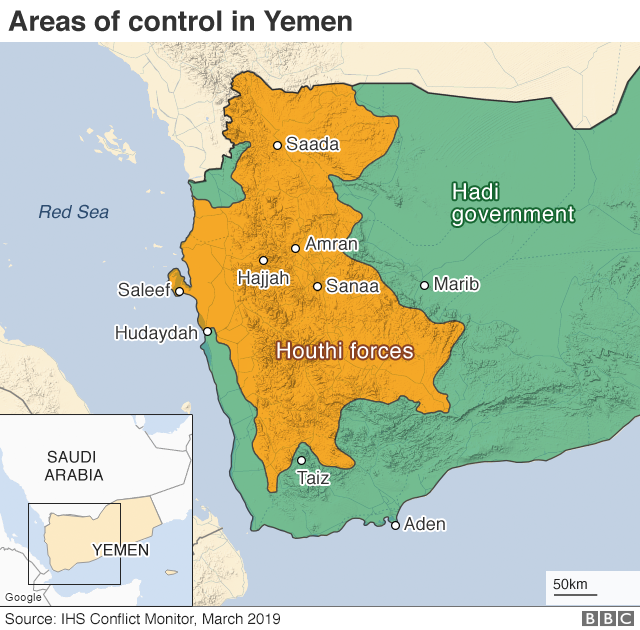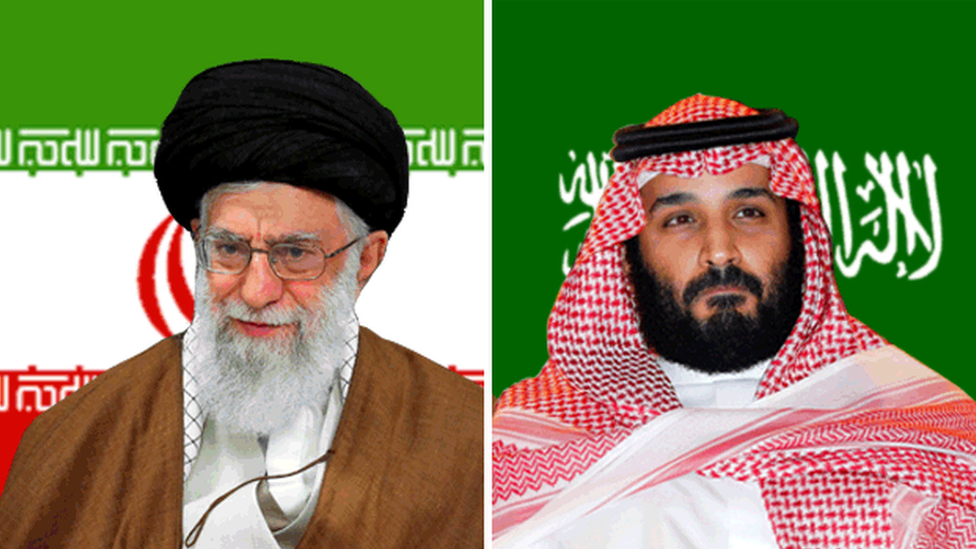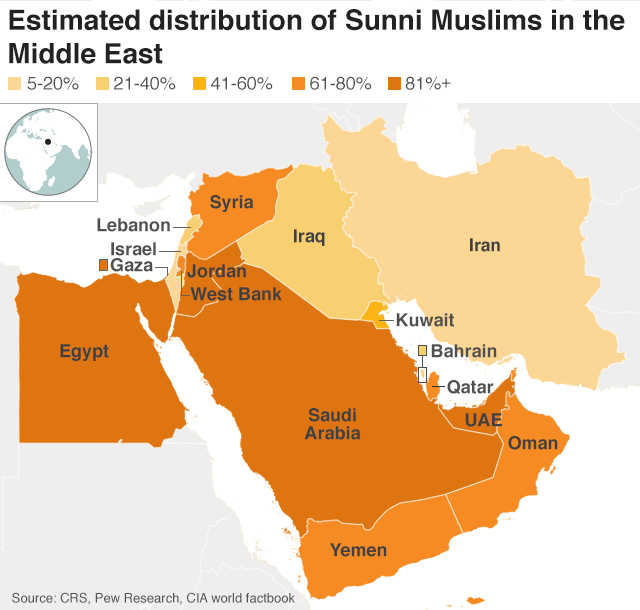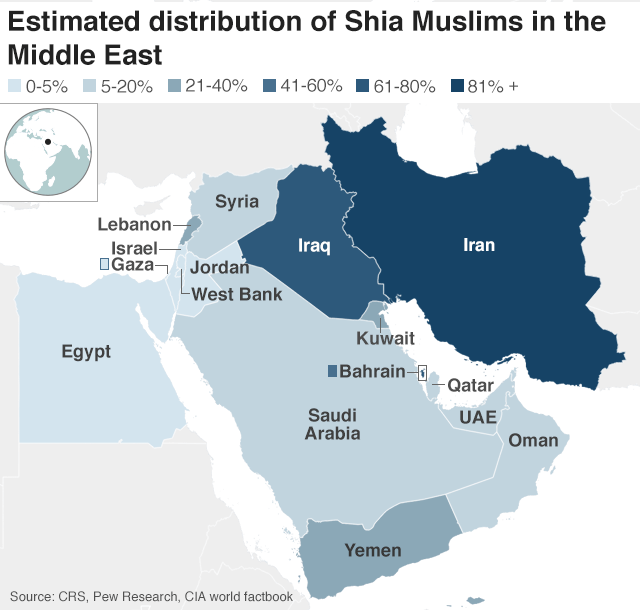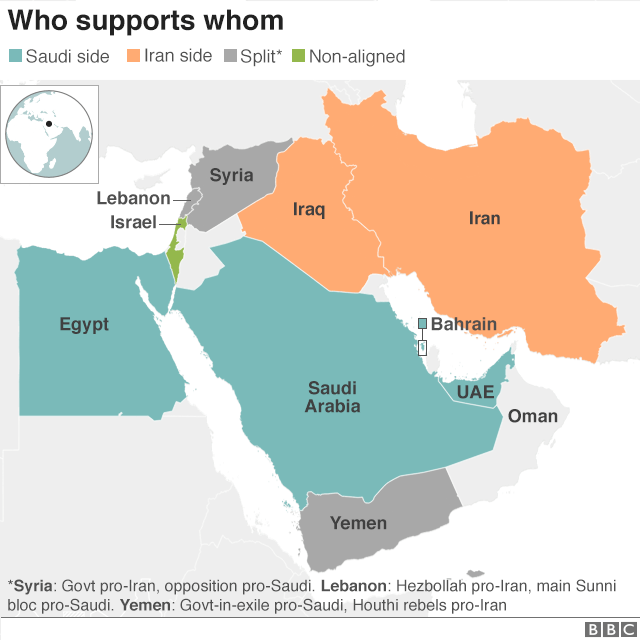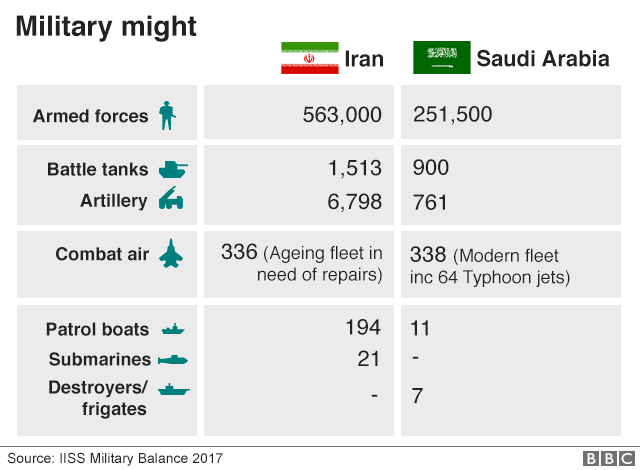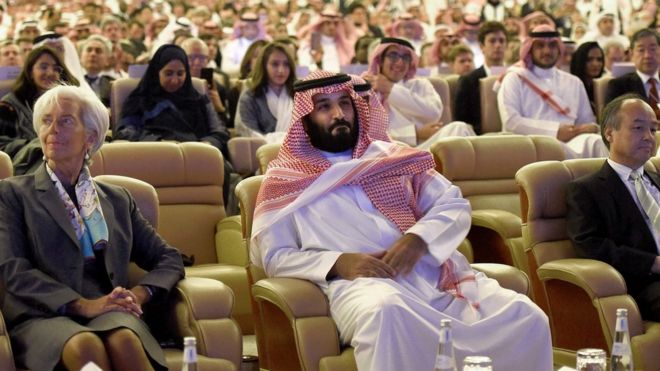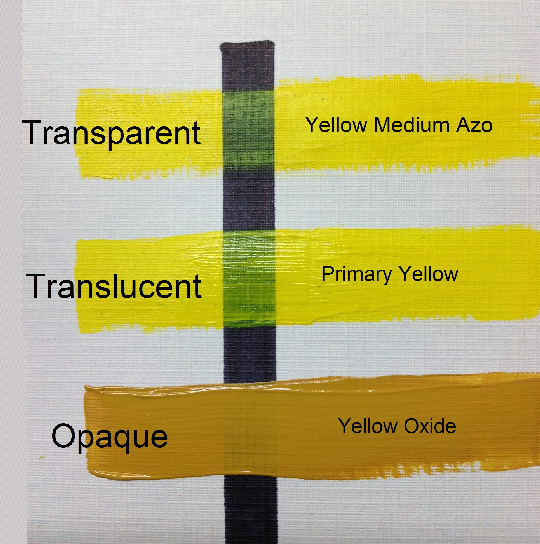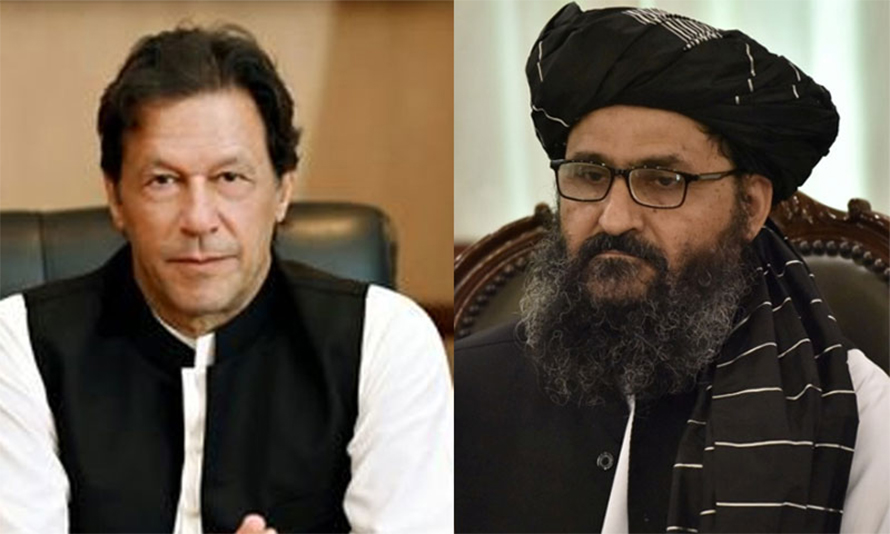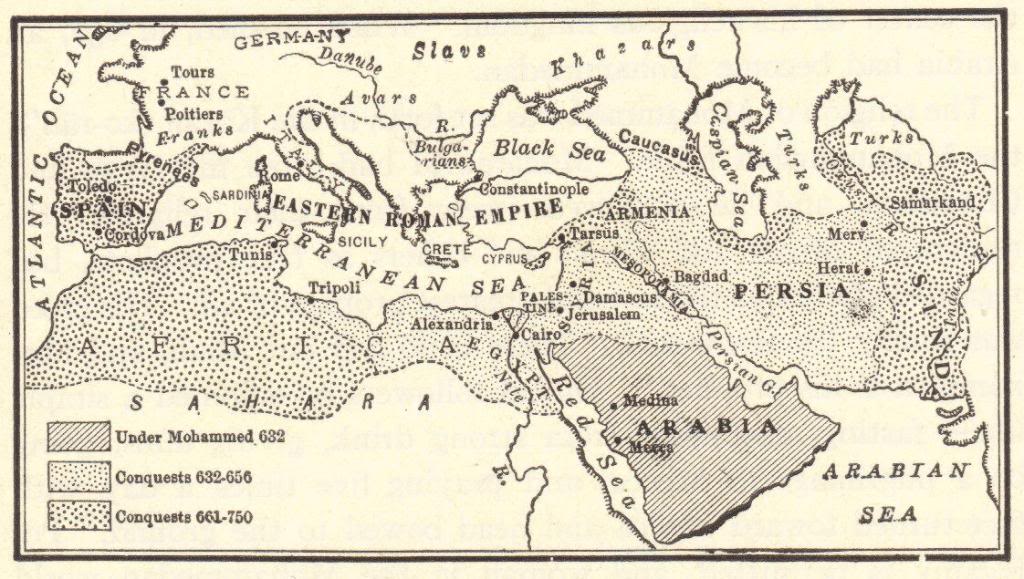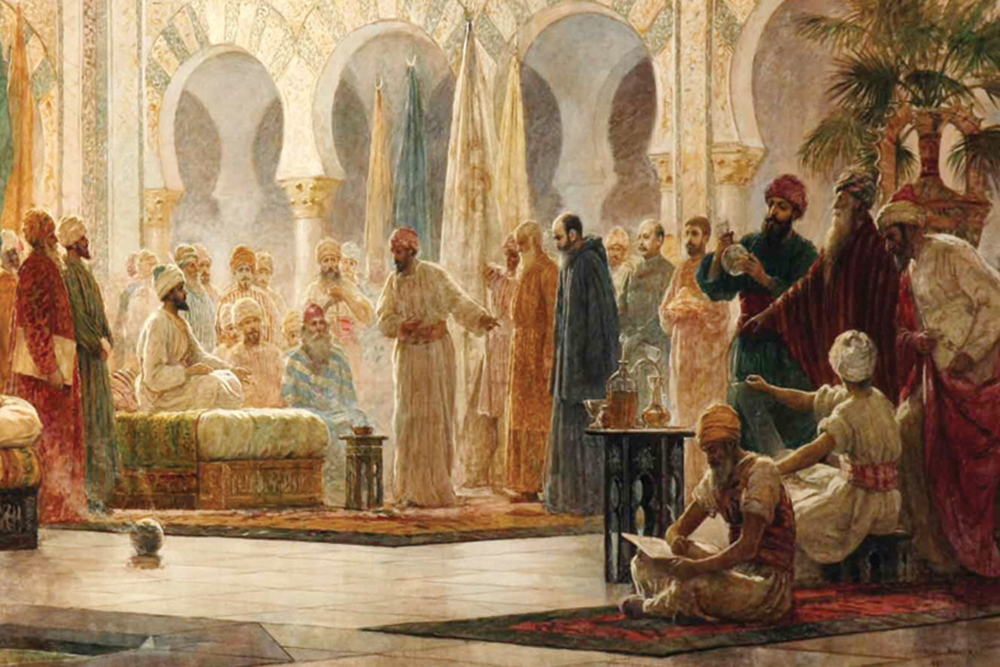Sunday, August 06, 2023
Sunday, June 04, 2023
इमरान साहब, बगावत बोल ही दो
इमरान साहब, बगावत बोल ही दो https://t.co/muwIVCECFk @ImranKhanPTI @FareedZakaria @NewsHour @cnn @nytimes @bdutt @TOIIndiaNews @narendramodi @PTIofficial @PTI @AndleebAbbas @PTIKPOfficial @PTI_KHI @PTIOfficialISB @PTISindhOffice @PTISPOfficial
— Paramendra Kumar Bhagat (@paramendra) June 4, 2023
Friday, March 24, 2023
Sadhguru's Save The Soil Campaign
I’m sure it will be fine pic.twitter.com/JWsq62Qkru
— Elon Musk (@elonmusk) March 24, 2023
Happy Friday! pic.twitter.com/hHS4Cr28yA
— Douglas A. Boneparth (@dougboneparth) March 24, 2023
I’m stunned by this action and by its rapidity, within 24 hours of the court verdict and while an appeal was known to be in process. This is politics with the gloves off and it bodes ill for our democracy. pic.twitter.com/IhUVHN3b1F
— Shashi Tharoor (@ShashiTharoor) March 24, 2023
Every startup needs...
— Andrew Gazdecki (@agazdecki) March 24, 2023
- Scrappy builders
- People who thrive in chaos
- Inclusive culture
- Speed of execution
- Optimism and excitement
- Alignment around strategy
- Constant learning
- Purpose and meaning
- Consistent small wins
- Believing when others don't
Keep building.
BJP dar gaya!!! 😀
— Sanjay Jha (@JhaSanjay) March 24, 2023
Rahul Gandhi wins game, set and match. BJP exposed as desperate, dictatorial.
UPDATE: India's annual rate of violence against journalists since 2014 has been just one-fifth as in the rest of the world - and 30% lower than in the United States. Data from the Committee to Protect Journalists. Chart by Salvatore Babones. https://t.co/UkYtG8cbEq pic.twitter.com/57en3ydhOF
— Salvatore Babones (@ProfBabones) March 24, 2023
Today I got asked a fantastic question:
— Harry Stebbings (@HarryStebbings) March 23, 2023
Have you ever been involved with a startup that achieved true product-market fit and still failed?
Investors, love to hear your response.
Mood: Moscow’98 pic.twitter.com/kvfBekntSm
— Varia Bortsova 💙💛 (@variainayurt) March 24, 2023
Engine 1 is back online. Still need more time to do reconciliations, and for other engines to catch up.
— CZ 🔶 Binance (@cz_binance) March 24, 2023
We were a bit unlucky with this bug. Our engines take hourly snapshots. This bug happened 57 min in. So, replay/reconciliation takes a bit longer.
Murder of Mandate pic.twitter.com/5t6aA1pzGx
— Congress (@INCIndia) March 24, 2023
Nobody predicted that pure language wrangling automation could lead to AGI. Perhaps this is a consequence of our collective blindness to the fact that human language itself is a living thing. pic.twitter.com/4NtXdK5E2W
— Carlos E. Perez (@IntuitMachine) March 24, 2023
Yeah, not possible to make motorcycles safe
— Elon Musk (@elonmusk) March 24, 2023
Electric buses are safer than electric cars and much easier to maker driverless if run on pre-determined routes.
— Paramendra Kumar Bhagat (@paramendra) March 24, 2023
Just 10 of these on 10 major routes running every 30 minutes will take half the cars off Kathmandu roads.
— Paramendra Kumar Bhagat (@paramendra) March 24, 2023
जनसङ्ख्या बृद्दिदर घट्यो!
— Madhu Raman Acharya (@MadhuRamanACH) March 24, 2023
विदेश बस्ने बढे!
उपत्यका छिर्ने थपिए!
गाउँका घर खाली भए!
जनगणनाले यस्तै देखायो!!
2024 comes closer.
— Sanjay Jha (@JhaSanjay) March 24, 2023
The BJP has united the entire Opposition.
It is time every political party works to defeat this brutal regime and bring to an end India’s darkest age since 2014.
विश्व भर में भारतीयों, भारतीय संस्थानों व मंदिरों पर हमला, शहीद ए आज़म भगतसिंह को उनकी शहादत के दिन खुलेआम ग़द्दार कहना।यह सब अचानक नहीं हो रहा है।साल भर पहले चेताया था तब देश ने मज़ाक़ उड़ा दिया। ख़तरा बड़ा है, दिल्ली के बौने की योजना राजनैतिक दल पकड़ ही नहीं पाएँगे। दुर्भाग्य😣 pic.twitter.com/lXtClVa2pN
— Dr Kumar Vishvas (@DrKumarVishwas) March 24, 2023
लोक सभा से राहुल गांधी जी का निष्कासन चौंकाने वाला है। देश बहुत कठिन दौर से गुज़र रहा है। पूरे देश को इन्होंने डरा कर रखा हुआ है। 130 करोड़ लोगों को इनकी अहंकारी सत्ता के ख़िलाफ़ एकत्र होना होगा।
— Arvind Kejriwal (@ArvindKejriwal) March 24, 2023
Welcome back, roses! pic.twitter.com/rnm3idwuT0
— Lisa Lucas (@likaluca) March 24, 2023
Water abundance is a direct consequence of soil health. If we Act Now to #SaveSoil through policy reforms, not only can we craft a completely different destiny for the Nation, we can also become a replicable model in reversing water scarcity for the tropical regions of the world.… https://t.co/oOb3QQW6KR
— Sadhguru (@SadhguruJV) March 24, 2023
Saturday, February 29, 2020
Imran, Imran
Pakistan is trying to change. It won’t happen in two years, perhaps, not in five years. It may even take a decade...... Khan’s intentions are clear, coherent, and blemish-free. ..... I voted for Khan. I trust Khan. So far....... On December 10, 2019, Khan tweeted: “Inspired by the ideals preached by our Prophet PBUH, especially in his last sermon, and duties enshrined in our Constitution, my govt is committed to the protection of human rights for all its citizens without discrimination.” .... Not a very kind and just place at the moment but based on Khan’s words and actions it is a safe assumption that Pakistan may become the best of itself someday...... Khan sees those who thought their life didn’t matter.
Wednesday, November 27, 2019
Yemen's Roadmap To Peace
This is what I do know. Yemen is not oil-rich. Sand and oil are two different things. It might surprise a lot of people but just because you have sand does not seem to mean you also have oil. Yemen is a poor Arab country. In that Yemen allows for time travel. The oil-rich countries all used to be poor like Yemen. That was only a few decades ago.
Yemen had a president who had been president for a long time, something like 30 years. He was toppled by a group of rebels inspired by the Arab Spring. He was gone and that created a vacuum, quickly filled by the two poles of the regional cold war, Iran and Saudi Arabia. And since there has been a civil war, lurching this way and that. There is widespread misery and mayhem. Fighters are not even 0.1% of the population. But the suffering is across the board.
Iran and Saudi Arabia can't go to war with each other, and they know it. The global economy would have a heart attack if they do. But Yemen is a poor, inconsequential country. War in Yemen does not rattle anyone except the poor, non-fighting Yemenis. This is a sad situation.
And, of course, the military-industrial complex in the United States fishes in every muddied pond. Yemen has been the reason that complex has sold over a hundred billion dollars worth of military hardware. 100 billion dollars is a lot of money.
The sad part is the civil war in Yemen might not see a quick resolution. But it is also true that if it goes for long enough, there are going to be implications beyond Yemen's borders. So it makes sense to proactively put out the civil war fire.
The best way would be for Iran and Saudi Arabia to wind down their Cold War. But that can feel too ambitious for the short term. It is possible to eke out peace inside Yemen even if Iran and Saudi Arabia do not normalize their relations. But it is hard.
There has to be a mediator for the peace talks. I think Imran Khan of Pakistan might be the only available neutral party who has some gravitas. Yemen could be the dress rehearsal for the eventual peace between Iran and Saudi Arabia.
Get the warring factions to meet and talk. Unite their fighters into one unified army for Yemen. Form an interim government. Hold elections to a constituent assembly. Something along those lines.
Yemen crisis: Why is there a war? Yemen, one of the Arab world's poorest countries, has been devastated by a civil war. ......... The conflict has its roots in the failure of a political transition supposed to bring stability to Yemen following an Arab Spring uprising that forced its longtime authoritarian president, Ali Abdullah Saleh, to hand over power to his deputy, Abdrabbuh Mansour Hadi, in 2011.......... Alarmed by the rise of a group they believed to be backed militarily by regional Shia power Iran, Saudi Arabia and eight other mostly Sunni Arab states began an air campaign aimed at restoring Mr Hadi's government........The coalition received logistical and intelligence support from the US, UK and France........... At the start of the war Saudi officials forecast that the war would last only a few weeks. But four years of military stalemate have followed.........
Yemen is experiencing the world's worst man-made humanitarian disaster....... The UN says Yemen is on the brink of the world's worst famine in 100 years if the war continues...... About 80% of the population - 24 million people - need humanitarian assistance and protection.
............ About 20 million need help securing food, including almost 10 million who the UN says are just a step away from famine. Almost 240,000 of those people are facing "catastrophic levels of hunger"........ More than 3 million people - including 2 million children - are acutely malnourished, which makes them more vulnerable to disease........ With only half of the country's 3,500 medical facilities fully functioning, almost 20 million people lack access to adequate healthcare. And almost 18 million do not have enough clean water or access to adequate sanitation..... Consequently,medics have struggled to deal with the largest cholera outbreak ever recorded
, which has resulted in more than 1.49 million suspected cases and 2,960 related deaths since April 2017......... The war has also displaced more than 3.3 million from their homes, including 685,000 who have fled fighting along the west coast since June 2018....... Separatists seeking independence for south Yemen, which was a separate country before unification with the north in 1990, formed an uneasy alliance with troops loyal to Mr Hadi in 2015 to stop the Houthis capturing Aden......... The situation was made more complex by divisions within the Saudi-led coalition. Saudi Arabia reportedly backs Mr Hadi, who is based in Riyadh, while the United Arab Emirates is closely aligned with the separatists. ....... Gulf Arab states - backers of President Hadi - have accused Iran of bolstering the Houthis financially and militarily, though Iran has denied this........ Yemen is also strategically important because it sits on a strait linking the Red Sea with the Gulf of Aden, through which much of the world's oil shipments pass.Why Saudi Arabia and Iran are bitter rivals Historically Saudi Arabia, a monarchy and home to the birthplace of Islam, saw itself as the leader of the Muslim world. However this was challenged in 1979 by the Islamic revolution in Iran which created a new type of state in the region - a kind of revolutionary theocracy - that had an explicit goal of exporting this model beyond its own borders. ....... Fast-forward to 2011 and uprisings across the Arab world caused political instability throughout the region. Iran and Saudi Arabia exploited these upheavals to expand their influence, notably in Syria, Bahrain and Yemen, further heightening mutual suspicions........ Iran's critics say it is intent on establishing itself or its proxies across the region, and achieving control of a land corridor stretching from Iran to the Mediterranean....... The strategic rivalry is heating up because Iran is in many ways winning the regional struggle....... In Syria, Iranian (and Russian) support for President Bashar al-Assad has enabled his forces to largely rout rebel group groups backed by Saudi Arabia...........Saudi Arabia is trying desperately to contain rising Iranian influence while the militaristic adventurism of the kingdom's young and impulsive Crown Prince Mohammed bin Salman - the country's de facto ruler - is exacerbating regional tensions........ In the pro-Saudi camp are the other major Sunni actors in the Gulf - the UAE and Bahrain - as well as Egypt and Jordan. ....... In the Iranian camp is Syria's President Bashar al-Assad, a member of a heterodox Shia sect, who has relied on pro-Iranian Shia militia groups, including the Lebanon-based Hezbollah, to fight predominantly Sunni rebel groups..... Iraq's Shia-dominated government is also a close ally of Iran....... This is in many ways a regional equivalent of the Cold War, which pitted the US against the Soviet Union in a tense military standoff for many years.....Iran and Saudi Arabia are not directly fighting but they are engaged in a variety of proxy wars (conflicts where they support rival sides and militias) around the region........ For a long time the US and its allies have seen Iran as a destabilising force in the Middle East. The Saudi leadership increasingly sees Iran as an existential threat and the crown prince seems willing to take whatever action he sees necessary, wherever he deems it necessary, to confront Tehran's rising influence...... Saudi Arabia's vulnerability has been demonstrated by these latest attacks on its oil installations. If a war breaks out, it will be more perhaps by accident rather than design.
....
Saudi purge demonstrates ruthlessness of crown prince Big things are happening in Saudi Arabia. Princes, ministers and top businessmen are being arrested, detained in a luxury hotel, accused of corruption, their planes grounded and their assets seized........ Corruption is rampant in Saudi Arabia. Bribes, sweeteners and lavish kickbacks have long been an integral part of doing business in the world's richest oil-producing nation........ Many of those appointed to key positions amassed astronomical wealth - in some cases running into billions of dollars - far beyond their government salaries, much of it stashed away in offshore accounts.......... The government he leads would love to get its hands on some of these offshore private assets, estimated by some to total as much as $800bn (£610bn)....... The ruling Al Saud family has never revealed how much of the nation's oil wealth goes to which princes and their families, and there are thousands of them. .......... many ordinary Saudis are welcoming this purge of the rich and famous, in the hopes that some of their wealth will be redistributed to the general population...... At 32 years old, Prince Mohammed bin Salman - or MBS, as he is known - has already amassed extraordinary control over the key levers in the country.........He is the youngest defence minister of any major country, and is also driving an economic development programme, declaring his intention to wean Saudi Arabia off its dependence on oil revenues......... He is largely popular with the young, despite dragging the country into a seemingly unwinnable war in Yemen and executing a damaging boycott against neighbouring Qatar. .......
The old guard in Saudi Arabia are rattled.
....... The crown prince knows that to drive through his modernising reform programme he may meet resistance, but he is now demonstrating a steely ruthlessness in removing anyone or anything that could get in his way. ........ There is no-one left in Saudi Arabia with any obvious powerbase to challenge the rise to power of the crown prince and he could well become king and rule for the next half-century........ Some among the royal family are grumbling that he is taking on too much too quickly, but perhapsmore worrying is how the religious conservatives will react in the long-term
.......... The Al Saud depend on these clerics for their legitimacy to rule the home of the two holiest places in Islam, Mecca and Medina (the king carries the title "Custodian of the Two Holy Mosques")........ So far, the clerics have accepted the curbs on their power and in September acceded to the lifting of the ban on women driving, which they always resisted....... In time, history will decide whether the purge begun on Saturday night has set the course for a better, cleaner Saudi Arabia, or whether it has started to melt the glue that holds this complex country together.Crown prince says Saudis want return to moderate Islam Saudi Arabia's Crown Prince Mohammed bin Salman has said the return of "moderate Islam" is key to his plans to modernise the Gulf kingdom........ He told reporters that 70% of the Saudi population was under 30 and that they wanted a "life in which our religion translates to tolerance"......... He made the comments after announcing the investment of $500bn (£381bn) in a new city and business zone.......... Dubbed NEOM, it will be situated on 26,500 sq km (10,230 sq miles) of Saudi Arabia's north-western Red Sea coast, near Egypt and Jordan......... Last year, Prince Mohammed unveiled a wide-ranging plan to bring social and economic change to the oil-dependent kingdom known as Vision 2030......... As part of those reforms, the 32-year-old has proposed the partial privatisation of the state oil company, Saudi Aramco, and the creation of the world's largest sovereign wealth fund....... The government also wants to invest in the entertainment sector. Concerts are once again being held and cinemas are expected to return soon................
"We are returning to what we were before - a country of moderate Islam that is open to all religions, traditions and people around the globe," he said.
....... "We want to live a normal life. A life in which our religion translates to tolerance, to our traditions of kindness," he added....... The prince stressed that Saudi Arabia "was not like this before 1979", when there was an Islamic revolution in Iran and militants occupied Mecca's Grand Mosque....... Afterwards, public entertainment in Saudi Arabia was banned and clerics were given more control over public life.Yemen's Roadmap To Peace https://t.co/3wKqKDUE5w @ImranKhanPTI @PTIofficial @PTIKPOfficial @SMQureshiPTI @ImranIsmailPTI @AliHZaidiPTI @MuradSaeedPTI @ZiaBangashPTI @PTIHazara @KingSalman @KSAmofaEN @Saudi_Gazette @MOFKSA @MojKsa_EN #Yemen #Iran #SaudiArabia #pakistan— Paramendra Kumar Bhagat (@paramendra) November 27, 2019
Kashmir Deserves Normalcy
"UAE Against All Violence And Terrorism"
The Hong Kong "Contagion:" Iran, Iraq, Lebanon, Chile And Counting
Thoughts On The Middle East
Formula For Peace Between Israel And Palestine
The Stupidity Of The Ayodhya Dispute
Saudi-Iran: Imran Is The Only One Who Can
New Capitalism Is Techno Capitalism, Hello Marc
The Nation State In Peril
Dubai, Pakistan, Peace, Prosperity
The Dubai Sheikh Is A Business School Case Study
South Asians Working In The Gulf
Masa, MBS, And The Broader Investment Climate
Thursday, October 17, 2019
Saudi-Iran: Imran Is The Only One Who Can
I grew up in a Nepal that knew soccer, but no cricket. So when I say I am a fan of Imran Khan, I mean Imran Khan the politician. I am a very political person. I was Barack Obama's first full-time volunteer in all of New York City. How do I know? I went to the very first meeting, and I was the only full-timer. I got to know the top 30 Obama volunteers in NYC that election cycle. A few years before that I was the only Nepali in all of America to do full-time work for the Nepal democracy movement that saw spectacular success during 19 days of April in 2006.
Imran Khan was at Columbia University in New York, I believe sometime around 2009 or after. I attended that. I asked him a question. He answered it.
As I see it, the formula for peace between India and Pakistan is fairly simple and straightforward. The same applies to Afghanistan. The formula is straightforward. But the Iran and Sauri Arabia equation is more complex. It has more dimensions. It might also look that way to me because my knowledge of that part of the world might be less. I just might be less familiar with the nuances and the details. But there are broad outlines that are clear to many people.
The number one thing is, war is out of the question. Iran and Saudi Arabia can not go to war. That option simply does not exist. It is unthinkable. An all-out war between Iran and Saudi Arabia is more unthinkable than a nuclear war between India and Pakistan. The global economy would have a heart attack.
Since Iran and Saudi Arabi are not directly talking, it is also obvious to me that Imran Khan is the only person who has any credibility to facilitate peace between the two powers. He should facilitate until the leaders of Iran and Saudi Arabia finally agree to hold summit-level talks, perhaps the first one in Islamabad. The second one in Delhi, perhaps.
I believe the key to peace is the two powers getting rid of the delusion that one might bring about regime change in the other's country.
Iran would like to export its political system to the neighboring countries. And Iran does not even have that great of a political system. It is not for Iran to decide the political system in Saudi Arabia. And it is not for Saudi Arabia to decide the political system in Iran.
Let's architect a peace that will create an atmosphere of maximum trade and tourism for both Iran and Saudi Arabia.
Iran is more or less a-okay. Saudi Arabia is more or less a-okay. But Yemen is not okay. Syria is not okay. Only meaningful peace between Iran and Saudi Arabia might bring relief to the people of Yemen and Syria.
Only a few days ago, for the first time, I learned that in the UAE there is a federal parliament. The UAE has a roadmap for universal suffrage. I refrain from commenting too much on some of these countries because I stand on a base of little knowledge.
I am going to speak my mind. Whose mind am I going to speak?
That both Iran and Saudi Arabia have accepted Imran Khan as a go-between figure is a big, positive step in the right direction. The next logical step would be for Imran to play host to the leaders of Iran and Saudi Arabia to hold a summit meeting in Islamabad where they can talk face to face.
After a few such summit meetings, they might agree on certain things.
- We have no active designs on regime change in each other's countries. The politics in Iran is for the people of Iran to decide. The politics in Saudi Arabia is for the people of Saudi Arabia to decide.
- We will bring to an end the proxy wars in the various countries in the region. To that end we will bring all stakeholders to the negotiating table, and steer a peacful, political process so as to bring peace and stability in the region. We will specifically work together to bring peace to Yemen, Syria and Lebanon.
- We recognize Israel's right to exist. And we pledge to find a creative solution to the Palestine problem.
- We both pledge to not develop nuclear weapons. To that end we invite all interested parties, including Israel, to participate in monitoring. And we ask that Israel submit a timeline to get rid of its nuclear weapons.
- We want to bring maximum trade and maximum tourism to each other's countries and to the region at large.
- We ask that all sanctions on Iran be lifted effective immediately.
Saudi-Iran: Imran Is The Only One Who Can https://t.co/qnvhFpDo3a @ImranKhanPTI @narendramodi @PMOIndia @AmitShah @SrBachchan @JrBachchan @iamsrk @aamir_khan @BeingSalmanKhan @PTIofficial @AliHZaidiPTI @PTI @PTIKPOfficial @SMQureshiPTI @ImranIsmailPTI @PTICPOfficial #Iran
— Paramendra Kumar Bhagat (@paramendra) October 17, 2019
Saudi-Iran: Imran Is The Only One Who Can https://t.co/qnvhFpDo3a #Iran #SaudiArabia #Pakistan #afghanistan #Taliban @KSAmofaEN @KSAMOFA @rbalsaud @Badermasaker @M_Naif_Alsaud @MOISaudiArabia @media_ksa @saudiatv @SBAgovSA @ShuraCouncil_SA @HRCSaudi @MojKsa @saudipost
— Paramendra Kumar Bhagat (@paramendra) October 17, 2019
Saudi-Iran: Imran Is The Only One Who Can https://t.co/qnvhFpDo3a @HassanRouhani @Rouhani_ir @iran @bbcpersian @VOAIran @JZarif @Eshaq_jahangiri @abdollahram @MohajeraniSayed @abdollahram @majazestan @haj_komeil @haj_haydar @famil_door @J1nne @a_gholhaki @faridebrahimi62
— Paramendra Kumar Bhagat (@paramendra) October 17, 2019
Pres. Trump thanks Turkey following ceasefire announcement: "I just want to thank and congratulate President Erdogan. He's a friend of mine, and I'm glad we didn't have a problem, because frankly, he's a hell of a leader." https://t.co/o4UjO7BtjE pic.twitter.com/GzeCOtx380
— ABC News (@ABC) October 17, 2019
Trump vs. Trump: Kurds Edition pic.twitter.com/eqMMwNWtlg
— The Daily Show (@TheDailyShow) October 17, 2019
"The man who makes too much of his peculiar excellencies ... is a vulgar man." https://t.co/JLP2dy6e4p
— Quartz (@qz) October 17, 2019
“So, you will not have anything better... democracy-loving, capitalist-respecting environment... in India,” Finance Minister #NirmalaSitharaman said.https://t.co/IzYla0fCu8?
— The Hindu (@the_hindu) October 17, 2019
Will Make Jammu And Kashmir "Developed State" In 5-7 Years: Rajnath Singh https://t.co/c9mzixjviJ
— NDTV News feed (@ndtvfeed) October 17, 2019
Ayodhya has been a site which has tested India’s resilience as a secular constitutional democracy. It is a site which has caused the most fundamental political rupture in the country in the past three decades.
— Hindustan Times (@htTweets) October 17, 2019
(report by @prashantktm)https://t.co/RYvlI0ZtyE#AyodhyaVerdict
Hello!
— Kais Al Essa قيس العيسى (@kaisalessa) October 17, 2019
Will Imran Khan's Saudi-Iran tour ease tension in the region? Khan's visits to Riyadh, Tehran reinforce Pakistan's neutrality, analysts say, but may not be enough to solve issues......... Tehran reiterated its readiness to come to the negotiating table........ Khan met Saudi King Salman bin Abdulaziz and Crown Prince Mohammed bin Salman (MBS) in the Saudi capital, Riyadh, late on Tuesday..... This followed a trip over the weekend to the Iranian capital Tehran to meet Iranian President Hassan Rouhani and Supreme Leader Ali Hosseini Khamenei......... At a joint press conference on Sunday, Rouhani reiterated an Iranian desire to resolve issues in the region through dialogue...... "Our two countries emphasised that regional issues could only be resolved through political means and dialogue," said Rouhani. "We openly welcome any goodwill gesture by Pakistan for providing more peace and stability for the whole region and we are ready to assist Pakistan for providing full peace and stability for the whole region."......... "Iran is our neighbour. Ties with Iran go a long way back," said the Pakistan PM.......... "Saudi Arabia has been one of our closest friends. Saudi Arabia has helped us when we have been in need. The reason for this trip is that we do not want a conflict between Saudi Arabia and Iran. We recognise that it is a complex issue." ....... Saudi Arabia is a major Pakistani strategic ally, helping to bolster the country's foreign exchange reserves earlier this year with interest free loans, and announcing more than $20bn in new investments in the South Asian country during a high-level visit........ Pakistan is also home to a Shia Muslim minority of roughly 20 percent of its 215 million population. Shia Muslims form the vast majority of the population in Iran........
Khan offered the use of the Pakistani capital, Islamabad, as a neutral venue for Saudi and Iranian leaders to meet to "iron out [their] differences".
.......... Tensions in the region have been at fever-pitch since the attacks, with the US backing Saudi Arabia's accusations of Iran being responsible, and Iran warning of "all-out war" if its territory was attacked....... Following the United Nations General Assembly in New York last month, Khan offered to help mediate between the two regional powers, who have also been battling each other through proxies in Syria, Iraq and Yemen........ Zahid Hussain, an Islamabad-based security analyst, said to expect Khan's meetings to lead to talks "is too much"........ "Khan has developed this kind of illusion about himself that he can now play a much greater role in uniting the Muslim ummah [community], but he doesn't realise that the Muslim ummah is so divided and fractured, with nothing to unite them." ......... Dorsey argued that even though Pakistan has "zilch" leverage over Iran or Saudi Arabia, it makes sense for it to pursue peace talks as a way to bolster its own position of neutrality and relations with each side individually.Pakistan PM: Trump asked me to be a 'go-between' with Iran "What I like about him is he does not believe in wars," Khan said of the US President, speaking to CNN in Islamabad...... Khan met with Iranian President Hassan Rouhani in Tehran on Sunday, before traveling to Saudi Arabia on Tuesday, with the aim of facilitating talks between the arch rivals....... Khan said Trump had asked him last month to "try and be a go-between with Iran and the United States." ...... The US blamed Iran for last month's attacks on Saudi oil facilities and Trump slapped Tehran with new sanctions on two pillars of the Iranian economy -- the country's central bank and its sovereign wealth fund...... Describing the attack as a "dramatic escalation of Iranian aggression," Defense Secretary Mark Esper told reporters at the Pentagon last month that, while the US "does not seek conflict with Iran," it had "many other military options available should they be necessary."......... He added that a priority in his discussions with the leaders of both countries was to create a ceasefire in Yemen, where a Saudi-led coalition has battled Iranian-backed Houthi rebels....... The abrupt US repositioning of troops from the area has left Syrian Kurdish leaders looking for support from Syria's government and from Russia ...... "I agree that there should be the best effort to leave in an orderly fashion. But will there ever be a best way to leave, end a war? That's why I don't believe in starting wars," he said........ Khan was speaking to CNN at his residence in Islamabad, shortly after hosting an official visit from the Duke and Duchess of Cambridge during their five-day tour of the country........ He was well-known as a friend of the late Diana, Princess of Wales, and said in an official statement released by his office that Pakistan still bears "love and affection" for her.
Saudi-Iran: Imran Is The Only One Who Can https://t.co/qnvhFpDo3a @AsadHashim @PrashantKishor @prashantktm
— Paramendra Kumar Bhagat (@paramendra) October 17, 2019
Saudi-Iran: Imran Is The Only One Who Can https://t.co/qnvhFpDo3a @StateDept @SecPompeo@BarackObama @HillaryClinton @SpeakerPelosi @realDonaldTrump @StephenBannon @tedcruz @JohnDrogin @R_Scheinman @VP @IsraeliPM @netanyahu @DeptofDefense @marcorubio @statedeptspox @NikkiHaley
— Paramendra Kumar Bhagat (@paramendra) October 17, 2019
Saudi-Iran: Imran Is The Only One Who Can https://t.co/qnvhFpDo3a @BBCWorld @BBCHindi @BBCBreaking @CNN @CNNPolitics @cnni @cnnbrk @AJEnglish @FoxNews @VOANews @gulf_news @BurjKhalifa @HH_Shkkhalifa @KhalafAlHabtoor @ImranKhanPTI #iran #SaudiArabia #Pakistan #PakistanZindabad
— Paramendra Kumar Bhagat (@paramendra) October 17, 2019
Nepotism is rampant in D.C. and, thankfully, the Trumps are calling it out… when it involves the Bidens.
— The Daily Show (@TheDailyShow) October 17, 2019
Full coverage: https://t.co/uazl3p2x5A pic.twitter.com/eCdsu1jxyf
Wednesday, October 16, 2019
Can't Stop Water To Pakistan
Water is about to become an issue. This past summer the seventh-largest city in India - Chennai down south - saw major water shortage. Chennai is far far from Pakistan.
Kashmir is a thorny enough problem. Let's not add water to that fire.
Don't blame Pakistan for global warming. Pakistan is itself a victim. Due to global warming glaciers in the Himalayas have been melting faster than they ought.
What to do?
Fight global warming by planting a trillion trees, and fast. Use rain harvesting techniques. That is a great way to collect water. India should become a less agricultural country. India should move up the economic food chain and should embark upon a clean energy led industrialization.
But whatever you do, don't block the water flow to Pakistan.
Clean energy technologies are seeing such exponential advances in terms of both quality and cost, desalination is going to become a very real option for both countries before the decade is out.
Will not allow water to Pakistan: Indian Prime Minister Modi https://t.co/cmBvMrnWKT @gulfnews
— Paramendra Kumar Bhagat (@paramendra) October 16, 2019
Saudi Arabia's King Salman holds talks with Pakistan's Imran Khan https://t.co/SfmgnPjhic @gulfnews
— Paramendra Kumar Bhagat (@paramendra) October 16, 2019
Trump has 'meltdown' during meeting on Turkey's invasion of Syria: Pelosi https://t.co/dwPl3T4WTd
— Gulf News (@gulf_news) October 16, 2019
Can't Stop Water To Pakistan https://t.co/EcXxwJBRle @gulf_news @ImranKhanPTI @narendramodi @PTIofficial @AmitShah @BJP4India @SMQureshiPTI @PTICPOfficial @khaleejtimes @Emirates247 #india #Pakistan #Kashmir #water #indusriver #China #bramhaputra #Bangladesh
— Paramendra Kumar Bhagat (@paramendra) October 16, 2019
Friday, October 04, 2019
Dubai, Pakistan, Peace, Prosperity
Dubai is rich. Pakistan is poor. But both need peace. The complex political tensions between Saudi Arabia and Iran have been costing Dubai big money.
And there is no way out for Pakistan unless there is peace on multiple fronts. Pakistan needs peace in Kashmir. Pakistan needs peace in Afghanistan. Pakistan needs peace between Iran and the Saudis. Pakistan needs peace in Yemen. In Syria. Pakistan needs peace between India and China.
India and China are like China and America. They can do war and peace at the same time. But India and China do need to settle their long border.
My knowledge of the Persian Gulf countries is much less than my knowledge of Pakistan. But I have been reading. Right now the domestic politics in many of these countries look downright opaque to me.
Saudis can't bring about regime change in Iran. Iran can't bring about regime change in Saudi Arabia. And so the formula for peace has to be co-existence. To the Americans I say, even if your goal is regime change in Iran, the formula that would work would be maximum trade and maximum tourism. The nuclear deal that Obama put in place was a floor on which more deals could have been built. For example, Yemen. The Saudis and the Iranians should meet and say, let's get out of Yemen. Let's engineer a peaceful political process instead. Israel should be part of the deal because it has the greatest interest in no nuclear spread. Also, it claims it is best at catching if Iran lies. Well then, why are you not part of the deal? To make sure Iran does not lie and cheat.
I was watching an interview of the Dubai Sheikh a few days ago. And he is pretty clear. He wants peace with Iran. Because he wants to trade with Iran. It makes sense to me.
Dubai is a beacon of hope. It needs to further prosper.
Dubai, Pakistan, Peace, Prosperity https://t.co/F4SXRQL56c @ImranKhanPTI @ImranIsmailPTI @PTIofficial @SMQureshiPTI @AliHZaidiPTI @PTI_KHI @PtiNorthPunjab @MuradSaeedPTI @KhurrumZamanPTI @HamdanMohammed @HHShkMohd @MaktoumMohammed— Paramendra Kumar Bhagat (@paramendra) October 4, 2019
Imran's Peace Gamble In Afghanistan
The Dubai Sheikh Is A Business School Case Study
The Impeachment Drama
South Asians Working In The Gulf
Masa, MBS, And The Broader Investment Climate
The Biggest Reason For Lifting The Curfew In Kashmir
The Importance Of Being Kind
MBS Is Right About The Possible War
I Am Rooting For Imran To Succeed In Pakistan
Formula For Peace: Iran-Saudi-US, Taliban-US, India-Pakistan
Imran Wants To Lift 100 Million Pakistanis Out Of Poverty
The Blockchain Will Make A Global Wealth Tax Possible
Imran's Peace Gamble In Afghanistan
The Taliban of Afghanistan remind me of the Maoists of Nepal. At their peak right before they entered the peace process, the Maoists held sway over 80% of the territory in Nepal. That does not mean they were ruling 80% of the country. But they had managed to drive out the state's presence in 80% of the country, which was meager in the first place. Right before the peace process the Maoists and the Nepal Army were at war. And a ceasefire was not an option. Because the seven political parties in Nepal were not in power. The king was.
And so the Maoists needed to declare a unilateral ceasefire. They had to then join an alliance with the political parties, who they had been targeting for years. Targeting in the Maoist language means killing.
So you declare a unilateral ceasefire with the Nepal Army who, by the way, never officially reciprocated. Then they form an alliance with the political parties. Together you wage a street movement in the capital city to drive the king out.
The six parties come to power. Then you come to power after you agree to put your army into cantonments. And you integrate the two armies and become a political party.
Fairly complex.
But I believe that is the formula also for Afghanistan.
Imran Khan is best positioned to deliver. I don't believe Donald Trump or Mike Pompeo understand the ground situation in Afghanistan. Terrorist bad, democracy good kind of language is not going to make headway. That is as much nuance as Bernie's Medicare For All.
The Taliban are a fighting force. And those fighters drawing salaries as soldiers in the Afghan Army would be a good way to get them out of the political equation. The nonfighters have to form a political party and be willing to contest elections. The elections could be for a constituent assembly to write a constitution for Afghanistan. Unless they agree to accept what is already in place. They might even emerge the largest party. If they do, they get to come to power. Two Maoists became Prime Ministers in Nepal. Why not?
I believe this is the way out.
Pakistan can not prosper unless there is peace in the neighborhood. The only person both the Taliban and the Afghan president are willing to talk to is Imran. The Americans just want to get the hell out. They just want reassurance that all hell will not break loose when they leave. A negotiated peace settlement will deliver that.
Imran Khan does not really need Donald Trump's involvement. Trump could be part of the final step in the process when Imran might be in a position to say, you can safely leave now.
In Nepal, there was this critical juncture right before the six parties (was it six or seven, I forget) and the Maoists formed an alliance. Some Maoists blew up a bus. That would have been an excellent reason for the six parties to walk away. But that walking away would have been a mistake. You have to understand, not all Maoists were happy. Many were feeling betrayed by their leadership. They were supposed to defeat the parties, not form an alliance with them. But walking away at that juncture would have been a bad idea.
Imran should tackle Afghanistan, then Kashmir, then Iran. Somewhere along the way, he should get the Nobel, but Greta first.
I was thinking perhaps Imran can not make moves between Iran and Saudi Arabia. But now I think he is in a very good position to do so. I think the Saudis overestimate the American willingness and ability to inflict military pain on Iran. The Americans primarily want to sell military hardware. They are not interested in actual war. If the Saudis want peace, they have to engage in direct talks with Iran, and perhaps Imran can mediate. Co-existence is the idea. Since finishing each other off is not an option.
अफगान तालिवान लडाकु र पाकिस्तानका प्रधानमन्त्रीबीच भेटवार्ता https://t.co/Ki4IqRKixW— Paramendra Kumar Bhagat (@paramendra) October 4, 2019
Imran's Peace Gamble In Afghanistan https://t.co/8u7vYZF9UO @ImranKhanPTI @ImranIsmailPTI @PTIofficial @SMQureshiPTI @AliHZaidiPTI @PTI_KHI @PtiNorthPunjab @MuradSaeedPTI @KhurrumZamanPTI #Taliban #Afghanistan #AfghanPeaceProcess #PakistanRisingAgain #peace— Paramendra Kumar Bhagat (@paramendra) October 4, 2019
Wednesday, October 02, 2019
Monday, September 30, 2019
The Biggest Reason For Lifting The Curfew In Kashmir
The curfew should be lifted. And the people of Kashmir should be told loud and clear, if they disagree with the decision, their best option is to take the issue to the Supreme Court of India, and to that end, they should organize peaceful gatherings in indoor locations and marshall their arguments after deliberations and discussions. That peaceful political process has to be encouraged to the hilt.
The curfew is inhumane. It is not the democratic way. And it needs to be lifted immediately. It has been two months already. That is two months too long.
Of course, all politicians, all intellectuals in Kashmir who have been put under house arrests if not outright taken to jail should be release immediately. Maybe they would like to give the Delhi government a wait and watch mode. Or maybe they disagree and they would like to go to the Supreme Court. That judicial process should be encouraged to the hilt. That might not be enough. But that might be one way to make the situation less explosive.
For me it is not about how I feel about Article 370. For me it is about how the people of Kashmir feel about Article 370.
I would be utterly surprised if there are no street protests after the curfew is lifted. But peaceful protests should be encouraged. And the judicial option has to be encouraged. Those who disagree with the decision need to see there is a political way to oppose it.
By now the curfew has become a major issue of its own. And the longer the curfew lasts, greater the ammunition for those who could never side with the Indian government.
Police impose restrictions in Indian Kashmir after Pakistan PM's speech In an address to the United Nations General Assembly on Friday, Khan warned of a bloodbath once India lifts its restrictions in Kashmir, which have been in force since it revoked the region’s decades-old autonomy in August and detained thousands of people. ...... Soon after the speech, hundreds of Kashmiris came out of their homes, shouting slogans in support of Khan late on Friday night and calling for the independence of Kashmir....... Both countries rule parts of Kashmir while claiming it in full...... The troops also blocked access to the main business center of Srinagar with razor wire..... Two Indian officials said six militants and one Indian soldier had been killed in two separate incidents in the state ........ Though New Delhi has eased some of the movement curbs, no prominent detainees have been freed and mobile and internet connections remain suspended......... While warning of the consequences of lifting what he described as an “inhuman curfew,” Pakistani premier Khan demanded India do so and free all detainees....... Khan addressed the United Nations a day after the senior U.S. diplomat for South Asia called for a lowering of rhetoric between India and Pakistan, while saying that Washington hoped to see rapid action by India to lift restrictions it has imposed in Kashmir and the release of detainees there.
The Biggest Reason For Lifting The #Curfew In #Kashmir Kashmir https://t.co/SF9sM5kYUo #ImranKhanVoiceOfKashmir #ImranKhan #IndiasPrideModi #ModiInUSA #IndianArmy #Article370revoked #Pakistan #AmitShah #BJP #Peace #democracy #freedom #HumanRights
— Paramendra Kumar Bhagat (@paramendra) September 30, 2019
The Biggest Reason For Lifting The Curfew In Kashmir https://t.co/SF9sM5kYUo @ImranKhanPTI @MehboobaMufti @OmarAbdullah @narendramodi @PMOIndia @AmitShah @PTIofficial @BJP4India @NitishKumar @PrashantKishor @RahulGandhi @priyankagandhi @SrBachchan @Amiteshshah1
— Paramendra Kumar Bhagat (@paramendra) September 30, 2019


